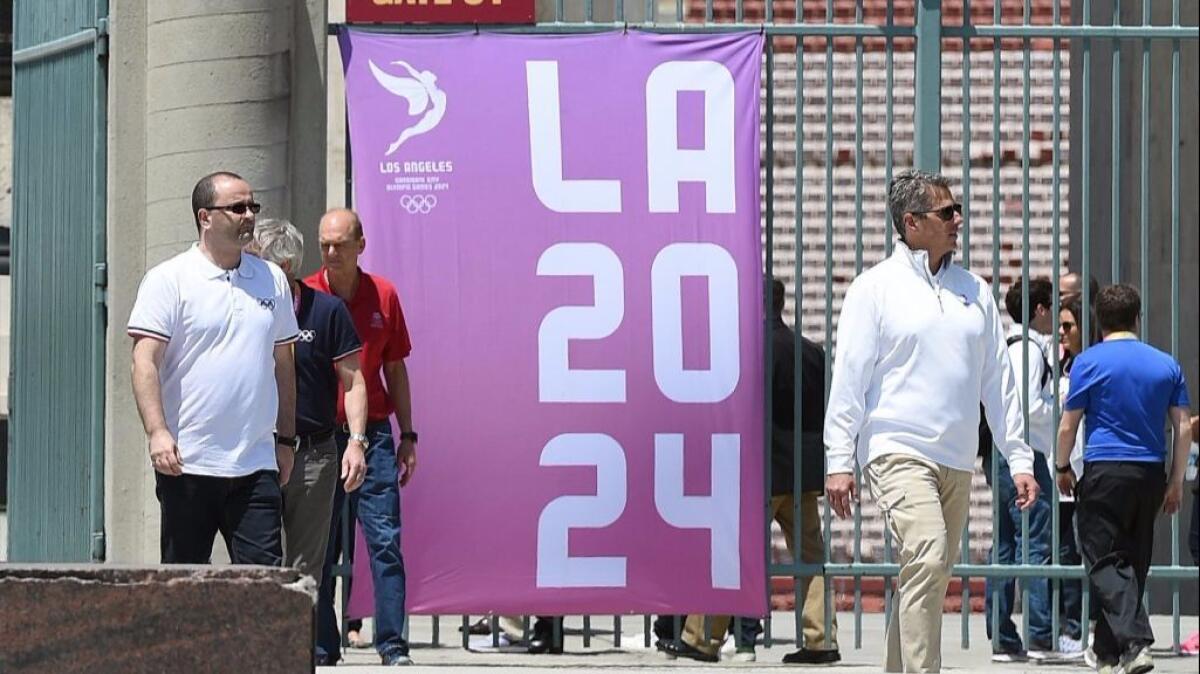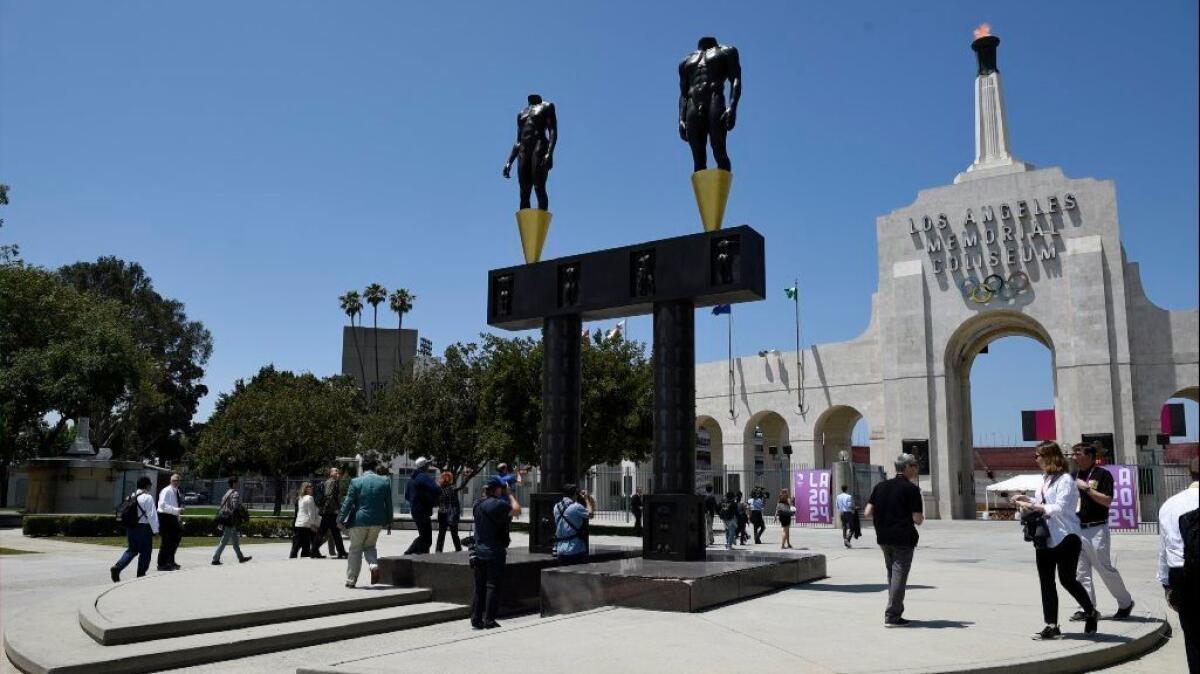Column: IOC visit to L.A. could have benefited from a bit more transparency

- Share via
Los Angeles took a big step forward last week in the race to host the 2024 Summer Olympics.
Bid leaders spent the better part of four days wooing International Olympic Committee delegates sent to assess the city. By all accounts, it went swimmingly.
“This visit has certainly confirmed our opinion that Los Angeles has developed an excellent proposal,” IOC executive Patrick Baumann said.
But as Baumann and his colleagues headed off to see the other candidate city — Paris — it felt like an opportunity had slipped through the cracks.
The Olympic movement could have used its time in Southern California to generate some more goodwill and maybe a few more positive headlines.
Instead, evaluators met behind closed doors, shutting out the public. During tours of L.A., they were kept separate from journalists and, when the groups wandered too close, officials scrambled to herd them in opposite directions.
It all felt secretive — certainly not the sort of thing the IOC needs in an era of doping scandals, corruption investigations and lingering concerns about the billions of dollars required to stage the Games.
If anyone seemed to appreciate the problem, it was Mayor Eric Garcetti, who has spearheaded the LA 2024 campaign.

“It’s really a privilege to host you all,” he told a contingent of reporters who had come from around the world. “I think your presence shows just how important the host to the 2024 Olympic and Paralympic Games is to all of us.”
Asked if he thought more of the evaluation process might have been conducted in the open, the mayor responded: “I wouldn’t have had any problem with that, personally.”
Facing the same question, Olympic officials provided at least one good reason for confidentiality.
The first full day of their visit included long presentations in which LA 2024 detailed its proposal and answered questions provided in advance. The sessions were designed to help the bid committee hone its final presentation before September’s vote.
“We are in a competitive environment right now,” Baumann said, adding later: “I mean, people in Paris would have been extremely happy to listen to those conversations.”
But there were other moments that could have — and should have — been more transparent.
The IOC originally intended to offer a brief statement each day, but not answer any questions from reporters until the end.
Only after seeing that Garcetti and sports executive Casey Wasserman, the LA 2024 bid chairman, intended to speak with the media every night did Baumann agree to take a few — only a few — daily questions.
The painstakingly separate tours Thursday made even less sense.
At one point, the two groups were scheduled to cross paths at the Coliseum, but reporters were asked to remain outside, across the street, while the evaluation team finished walking through the stadium.
LA 2024 had prepared something special for one of the delegates, Nawal El Moutawakel, a former hurdler who won gold at the Coliseum during the 1984 Games.
The end-zone scoreboard showed footage of her victory. Another Olympian, Joan Benoit, was there representing the bid and her marathon win played over the screen, too.
Their achievements were particularly historic in that women had not been allowed to compete in the 400-meter hurdles or the marathon before 1984.
As they gazed at the giant screen, Garcetti recalled later, “they were standing by each other crying.”
It was a moment that might have played well in nightly telecasts and the next morning’s newspapers. Not only was it kept out of sight, but media requests to speak with El Moutawakel were denied as the IOC contingent hopped into a fleet of golf carts to be whisked away.
None of this means to portray Baumann or IOC executive director Christophe Dubi as disagreeable. They were both good-natured in the limited instances when they spoke publicly.
But the Olympic movement could have benefited from more transparency.
An open process might have eased some concerns in a city where bid leaders have proposed spending $5.3 billion on the Games. It might have made the IOC seem more approachable and friendlier to American sports fans.
At the final news conference — where Baumann and Dubi spent considerable time answering questions — Garcetti put the whole thing in perspective when he made reference to the organizing committee that put together the 1984 Summer Games.
“The OCOG actually did every board meeting as a public meeting,” he said. “Open to the press, open to the public.”
The mayor had mentioned as much to the visiting IOC group.
“It’s a great model,” he said.
Follow @LAtimesWharton on Twitter
More to Read
Go beyond the scoreboard
Get the latest on L.A.'s teams in the daily Sports Report newsletter.
You may occasionally receive promotional content from the Los Angeles Times.







